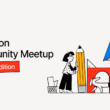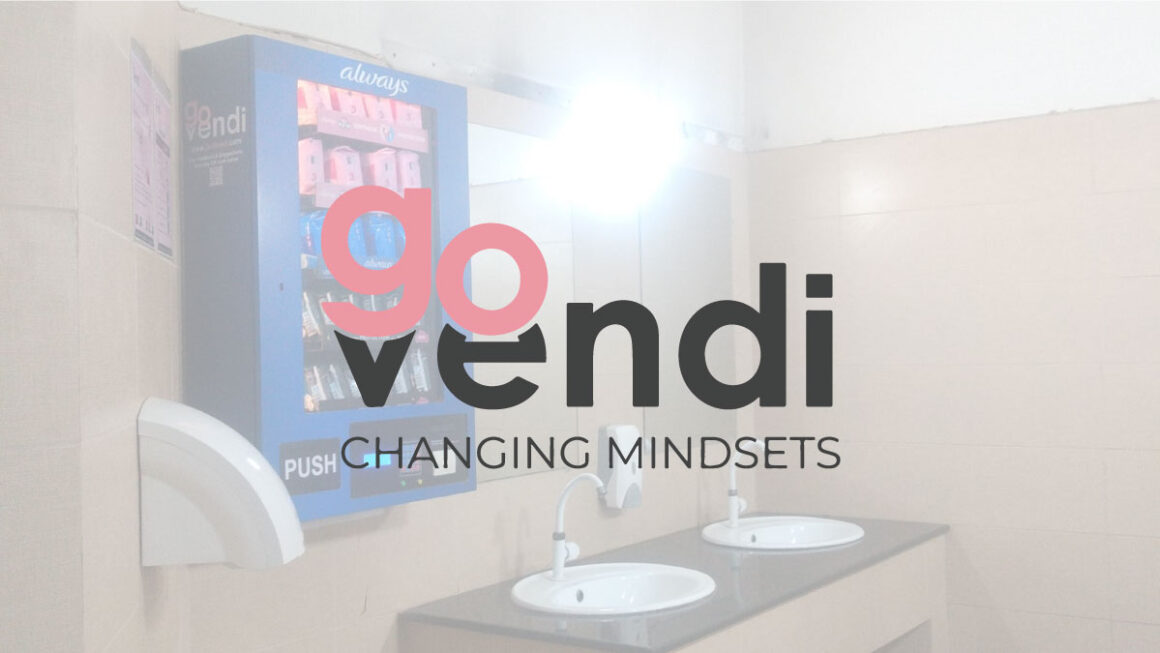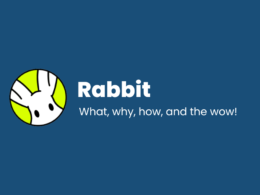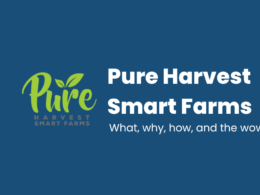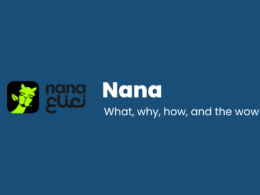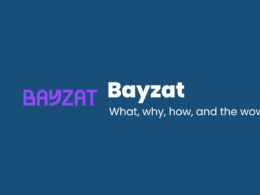Female well-being and the talk of menstruation in Pakistan is not only a taboo topic but when it comes to startups, rarely do you see anyone jumping into this segment to tackle the norms and revolutionize it, as other industry segments have been done in the past.
A duo of entrepreneurs based out of Karachi are looking to make female sanitary napkins more accessible via vending machines and hence the name: GoVendi. WTS talks to them to get more insight into their plans and how does the market look like:
Tehreem Farooqi [TF]: To start off, I would like you guys to tell me a bit about yourselves and your background.
Zohaib Ahmed [ZA]: Sure. Starting with education, I did my BBA in Marketing from IBA and graduated in 2020. After that, I worked with an FMCG company for around two years. I recently shifted to the government sector and am working on this new venture on the side. And when GoVendi goes big, I am hoping to switch full time to it.
Sahib Dino [SD]: I just graduated in 2021 from CBM with a bachelor’s in business and psychology. I’ve been working with this startup known as Noon and I’m looking after their partnerships in Pakistan. Before that, I worked with different global startups and did some internships in the development sector.
TF: What motivated you guys to work on an idea like GoVendi and why this particular niche?
ZA: As I mentioned, I worked at a sanitary napkin manufacturing brand called Butterfly for two years and while working there, I clearly saw the need for these vending machines at offices, hospitals and educational institutes because women really need these products and they should not have to carry them all the time or in case they forget, there must be some alternative for them.
Plus we did a bit of research and found that these machines are available in India, the UK, Europe, the USA and everywhere – but no such manufacturers here in Pakistan. There ARE vending machine operators but not specifically for this purpose. The machines they have are bulky and too costly and not suitable for sanitary pads. And there aren’t any companies customizing their vending machines for this purpose. So we wanted to bridge that gap and develop smaller machines specifically for sanitary napkins.

So, I discussed this idea with Sahib and we have been working on this for some time. Now, we have just launched our very first machine and installed it at CBM Karachi.
TF: Just to understand it better – the machines that you are customizing for your specific use case, what will be different other than the size from regular vending machines?
SD: What makes our machines different is that we are making them specifically for educational institutes or organizations where people use RFID cards at the entrance and they can use the same cards to get our products. So we will work with the specific company or institute to customize it for their environment.
Secondly, since the size is pretty small, they are easily portable, and people can easily install them wherever they want like the bathrooms or corridors.
ZA: Also, I’ll add something here. We are also planning on providing metrics and sales data to our partners and clients. So, all our machines will be controllable from our portal and tagging real-time data.
Our machines only have the cash payment option for now, but we will also be providing the digital payment method soon.
TF: How does the manufacturing of these things work since you guys said that you are making custom machines yourselves? Are there any partnerships associated?
SD: We have hired a local supplier which produces various parts of our machines from the cash acceptor to the motors installed in them. And then they are assembled locally so we are making it all in Pakistan. We have partnered with Always Pakistan and their products are available in our machines right now.
TF: What’s the thought behind the name “GoVendi”?
SD: “Vendi” basically came from vending as these are vending machines that we make. And for “Go”, one meaning is that the products are easily accessible and available on the go. And another thing that came to my mind when I was coming up with the name was that this is something sustainable and ongoing and it’s something that will serve to change the mindset of people regarding this subject.
TF: Tell us about what was the reaction of your family or your peers to the idea of a startup that works with female hygiene products?
SD: Our families were quite supportive and it was something which they really encouraged us to do as this is very important. And it’s all about the mindset of people. I mean, in Pakistan, this has been a taboo for so long. And I mean, it’s still a taboo. People don’t want to talk about this mostly the men in our society. So, we want to eradicate that taboo and we have the tagline “GoVendi – Changing Mindsets”. So that’s what we want to do and our friends have been really supportive of that cause.
ZA: Yes, same for me. My friends and family have been supportive, and we are expecting good support and response in the future as well.
TF: How are you guys planning on creating a demand in the market? And if you go pitch this idea to some company or administration, what’s the response you see?
SD: Honestly, I think there actually is demand for this in the market. In Pakistan, we have diverse kinds of industries. So in some cases, we will indeed see rejection from companies. But there also is a lot of positive response too. As soon as we placed our first machines, students shared about it in their groups and people reached out to us from other universities too asking if we can place these machines there. So I think there will be some people or organizations coming to us directly and some, we might have to pitch and convince ourselves.
TF: Since you guys are in an initial stage, how are you guys planning on marketing it?
SD: We are planning on launching officially on our digital channels now as we have seen a great response from people after installing our first machine. We weren’t expecting it but people have been messaging us privately and inquiring about our business so we are planning on starting campaigns on our social media and different Facebook groups soon.
TF: Can you guys tell us about your team size and how are you guys thinking about growing in Pakistan?
SD: For now, it is just me and Zohaib but obviously, going forward we will need support for the operations side of it like the managing, installing and refilling of machines. And we are also planning on hiring people for partnerships with different companies and universities to place our machines there. And then, of course, we will need people for business development and social media.
TF: As it is something related to women, how do you guys ensure that women are involved in the decision-making process? Like which products should be there, and where the machines should be placed and all that?
SD: That’s actually a great question, and something we are still in the process of figuring out. But right now, we are onboarding female student ambassadors from the universities where we place these machines and they definitely help us decide these things. And in the future, we will be hiring female staff for different positions too and including them in these discussions definitely.
TF: Let’s talk about funding – Is this startup bootstrapped and when are you guys thinking of raising funds?
ZA: Currently it’s all bootstrapped. We both have pitched in for the machines and that’s the plan for now. But we will surely be interested in funding as we get more orders and we get more streamlined. Right now, our cost is also managed from the collaborations we do with companies like Always and they showcase their branding and advertise their products on our machines. And the machines also have their products exclusively.
So, right now, we are only trying to streamline our processes. But as we grow our network, we are planning on establishing a manufacturing plant and expanding in other cities so we will definitely need funding and we will then start pitching to investors.
TF: Talking about expansion, which cities are you guys looking to expand in?
ZA: Well I think Karachi is a pretty big market for starters. We are hoping to cover Karachi first and expand to different universities and offices. And we will be collaborating with the government sector to provide those machines to the rural areas in different government schools and colleges.
SD: Also, when we expand to different cities, our focus would be the major cities like KLA – Karachi, Lahore, and Islamabad. We want to make these products as easily accessible as possible so, we will surely be moving to smaller cities after that.
TF: Can you also talk about your revenue model? Is it just these partnerships or do you also make some profit on the product itself?
ZA: Well, that profit is also there but it’s marginal as we buy our products at retail price and sell it for the same too. So, the majority of revenue comes from these partnerships and advertisements. We generally take a six month or yearly advance from them for the branding and that is enough for us to cover the cost of the machines.
TF: How has NIC Karachi empowered your startup in reaching its goals and what are the services they offer that you think other entrepreneurs should know about?
SD: I think NIC has been really helpful for us. It’s a great platform and a great community with so many mentors who have built something on their own. You can connect with them and learn a lot. In terms of coaching, counselling and mentoring, NIC is amazing.
ZA: And it’s not just an office space that they provide, it’s the training sessions that they conduct and the community which helps with whatever we need. They have been a positive impact so far and are very supportive to date.


